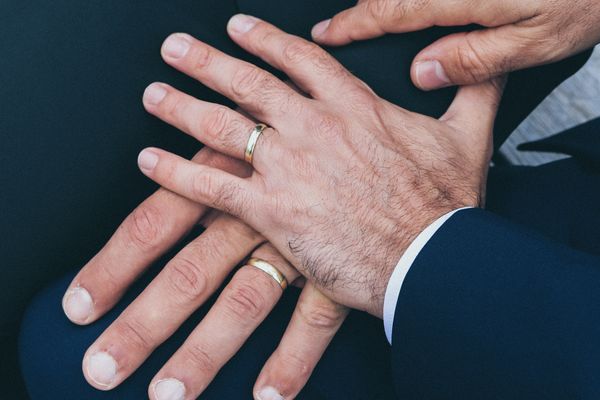Gays never had it so good. It’s something I’ve often heard among the LGBT community and their allies, and it’s a nice sentiment, even if it’s not exactly true. Great strides have been made. The overturning of the Defense of Marriage Act and Don’t Ask, Don’t Tell, and the passage of laws protecting LGBT students in public schools are all great developments in the struggle for full LGBT equality. But as the recent passage of the infamous North Carolina “bathroom bill” has shown us, the fight is far from over. And that might be why I’m finding myself more and more frustrated with the description of the LGBT community as “queer.”
Perhaps it’s unfair of me. I am, after all, a dinosaur in the eyes of the current young gay crowd, an old geezer sitting on my front porch and creaking out dire warnings about the bad old days. After all, I was born into a family of two moms the year the Defense of Marriage Act became the law of the land, and I spent most of elementary school getting sent to the principal’s office for shouting down my classmates when they used slurs like “dyke,” “fag,” and yes, “queer.” I’m not going to deny that huge progress has been made towards LGBT rights. I just don’t think we’ve made enough progress to justify reclaiming and totally accepting a word that was a potent insult less than 10 years ago.
Queer, queers, queering, queered. Something about the word feels slippery and undefinable to me, and maybe that’s why I dislike it. Maybe that’s why everyone else likes it so much -- because it leaves room for an infinite number of categorizations, because it leaves room for us to move out of the “limiting” LGBT acronym and allows the full spectrum of hyphen-sexuals and hyphen-romantics to come streaming in. Maybe people feel that an acronym isn’t possibly inclusive enough to represent all of us. And that’s fine. But I have a problem with the word “queer.” At least for me.
It’s not a word I’m comfortable with simply because of its history. Something doesn’t stop being a slur just because you decide to reclaim it. Using the word “queer” to refer to yourself doesn’t remove the possibility of someone using it to hurt you. Deciding to label yourself “queer” doesn’t erase the half-century of the word being thrown like a weapon at kids in the hallways, at couples holding hands in the streets, at anyone who deviates from the norm. I’m not ready to hear that word every day. I don’t think it’s wise to refer to yourself by a word that every generation before us associates with negative qualities. It may be safe to call yourself queer in the liberal enclaves of the West Coast and the Northeast, but there are plenty of places in the U.S. where calling yourself queer is a one-way ticket to street harassment. When my moms and I visit our relatives in Ohio and Georgia, my mothers avoid acting like a couple in public because to do so might place them in danger. “Queer” packs a punch, all right.
So everybody, go ahead and reclaim “queer” for yourself. But don’t apply it to the entire LGBT community because you feel like the past is the past, and whatever gains we’ve made in the past 10 years have wiped out the suffering that the last 30 years have brought. It’s fine with me if y’all call yourself queer. Just don't give that label to people who don't want it.





















